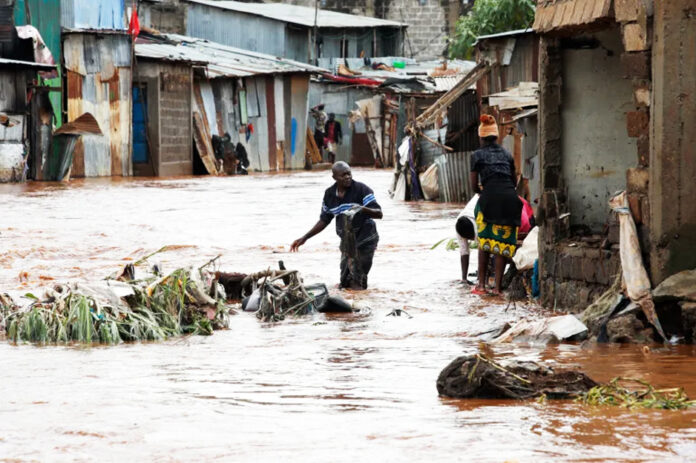
Collins Obondo stood atop the rubble of a house in Mathare, one of the largest informal settlements in Kenya’s capital Nairobi, surveying the aftermath of a flood that destroyed his neighbourhood.
“This is all that’s left of my mother,” the 38-year-old said, looking down at the heap of muddy miscellaneous items gathered together on top of where her house once stood.
Last Tuesday, residents awoke in the middle of the night to the frantic shouts of “Maji! Maji!” (Water! Water!) after torrential rain triggered widespread flooding across the capital. The overpopulated settlement is situated within a valley through which the Mathare River flows. The waters had begun rising sharply, reaching about 35 metres (115 feet) high, sweeping away hundreds of makeshift homes built along the riverbed and submerging thousands more.
Obondo’s mother, Benna Buluma, who was a community activist known locally as “Mama Victor”, drowned in the floods. Obondo survived because he happened to be somewhere else, but his home, located beside hers, was also destroyed.
“It’s been hard to make sense of all of this,” Obondo said, adding that everyone who was home at the time died, including Buluma’s two small grandchildren who were with her at the time.
The children’s fathers – Victor and Bernard – were killed by Kenyan police in 2017. In the years since, Buluma had devoted her life to demanding justice for them, along with many families who have lost loved ones to police bullets.
“My mother spent years fighting for justice for the neglected people of the slums. And it was that same government neglect she was fighting against that killed her,” Obondo said, his voice rising.
“I blame all this on the government,” he said about the loss and destruction that residents say they have been left alone to grapple with in the aftermath of the flood.
Credit: aljazeera.com








